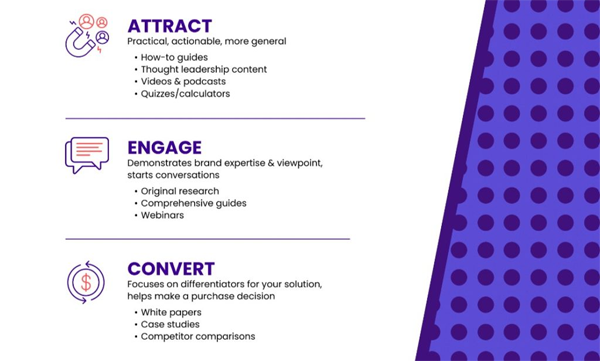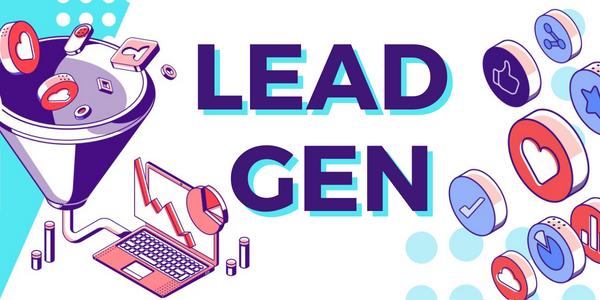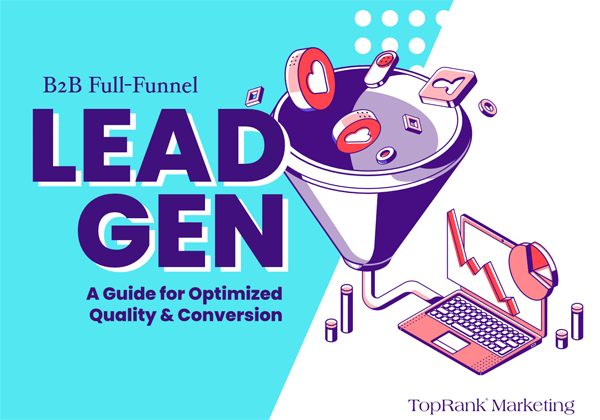The definition of a ‘lead’ has been a point of contention for ages. Marketers feel like anyone who gives up their contact information in exchange for an asset should be considered a lead. Sales thinks the term should be restricted to people who are actually part of the decision-making process and currently in-market. The classic battle of marketing vs sales, but we are here to help connect the dots.
As businesses brace for a potential recession, marketers will increasingly be held accountable for the quality of leads we provide. We will need to get closer to the sales definition: People who are relevant, on the buying committee, and at least a few steps into their customer journey.

The good news is that our existing B2B content marketing tactics can deliver all of the above. It’s just a matter of strategy. Content marketing isn’t just part of a full-funnel B2B marketing plan—it’s the foundation.
Our team has developed a playbook to guide your full-funnel lead gen strategy for optimized quality and conversion.
Here are a few highlights from this resource to help you take the lead (get it):
1 — Develop a full-funnel content strategy
It’s easy to focus your content marketing efforts on the demand side. How often have we heard that content marketing shouldn’t be too sales-y or brand focused?
But once we’ve raised that awareness and gen’d that demand, we can’t just drop people into the void. Content is the vehicle to move people through the entire funnel.
Our agency defines full-funnel content like this:

Your content strategy should include content for all three stages. What’s more, each should include a point of entry for someone in a previous stage and a logical next step to keep the journey going.
2 — Use content, influencers & promotion to select your audience
B2B marketers have the privilege of choosing our most valuable audiences. All we have to do is use the tools at our disposal.
First, how you angle your content determines who will respond to it. Best answer content to specific search queries will draw in the specific audience you’re looking for.
Influencer contributions are another way to select a specific subset of potential readers. Look for influencers who already have a following that matches your ideal customer profile.
Finally, use targeted ads (especially on LinkedIn) to promote your content to people in the right industry, role and seniority to become potential leads.
3 — Best answer content + strategic promotion = great results
One stellar example of full-funnel content marketing comes from our client Smartsheet. They wanted to raise awareness of a new Microsoft Teams integration, as well as drive new downloads and implementation of the tool.
TopRank Marketing deployed a full-funnel campaign, starting with social-first posts featuring influencers, continuing through blog posts for middle funnel, and finally a campaign hub page to drive conversions.
The result: Smartsheet saw a 30% increase in app downloads, in addition to top-of-funnel KPIs like traffic and page-views. Check out the full case study here
It’s time to be a lead gen leader
B2B organizations are battening down the metaphorical hatches as the economic forecast shifts. That can mean tighter budgets for marketers, not to mention more pressure to tie their efforts directly to revenue.
Full-funnel content marketing can help you achieve greater marketing value and prove your worth to the business.
Ready to take the lead? Download B2B Full-Funnel Lead Gen: A Guide for Optimized Quality & Conversion to get started.
Ready to connect with one of our lead gen experts now? Book a time to talk about how we can elevate your 2023 strategy!




